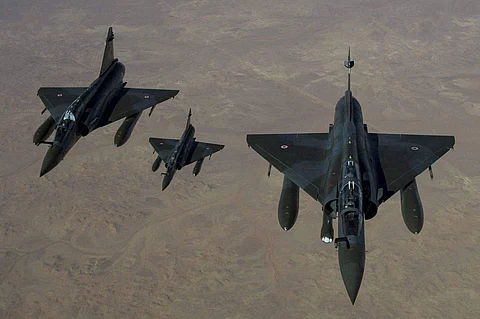

Tilak Devasher, former Special Secretary, Cabinet Secretariat, specializes in security issues with a specific focus on India’s neighbourhood. During his stint with the government, he has served in Delhi and J&K, as well as in Indian missions in Islamabad, San Francisco, Yangon and London. He is also the author of two widely acclaimed books on Pakistan, and writes regularly for various Indian and foreign publications. He spoke to Ramananda Sengupta
Let me preface this by saying that what has been achieved in today’s airstrikes is something very fundamental, and a very major achievement. Because whatever restraints that we had put on ourselves, of not reacting for fear of escalating it to the nuclear level, those shackles have been broken down by India conclusively.
Pakistan will have now have to rethink its entire strategy of using non-state actors against us. So far Pakistan’s strategy was that under a nuclear overhang they could do whatever they liked and India would not dare to attack. That has been demolished totally. That’s the first point.
Where do we go from here? Pakistan will have to react for the sake of its own prestige domestically in the country. Their dilemma is going to be that there are no terrorist camps in India. So what do they retaliate against? They will either have to retaliate against a military target, or against our civilian population, or an economic target. Each of these is very escalatory or a direct declaration of war. So I am not sure whether Pakistan or its ministry of defence would either advise that or whether it is even prepared for a war.
So what they are likely to use, and it’s an easy option for them, would be to galvanise some of the terrorist sleeper modules within the country. They may try to do that, so we need to be very careful and remain on watch, internally. But this will not be satisfactory enough for the Pakistani army or the Pakistani public itself. Because they will say that if we have to take revenge, the Pakistan army will have to do something. So it’s a difficult situation for them, and it will be interesting to see how they will react. React they will, but how they do so, we will have to just wait and see.
Everyone knows that the Pakistani army needs India as an enemy to justify its own sweeping powers. Cumulatively, these steps will demolish the mystique of the Pakistani army. It is the institution of last resort, which is supposed to protect the Pakistani people. But a strike like this will dent its reputation so much that people will say they use 30 per cent of our budget and enjoy all privileges, and yet when it comes to the crunch they are not able to defend us.
So once the mystique of the Pakistan army gets demolished, or at least dented, automatically you will find that the civilian government will start asserting itself more. Once the civilian government understands the insecurity that the Pakistan army suffers from, it may be possible that in the next 10 to 15 years or so, we might have normal relations - I don’t say good relations - with Pakistan. That is in case the civilian government in power is strengthened and doesn’t perceive India to be a threat.
So now the ball is totally in Pakistan’s court. We have given a clear-cut message and demolished a major terrorist training camp. Let’s see how Pakistan reacts. But the message has gone across to them very strongly that the next time you do something like this, we will enter your house and hit you.